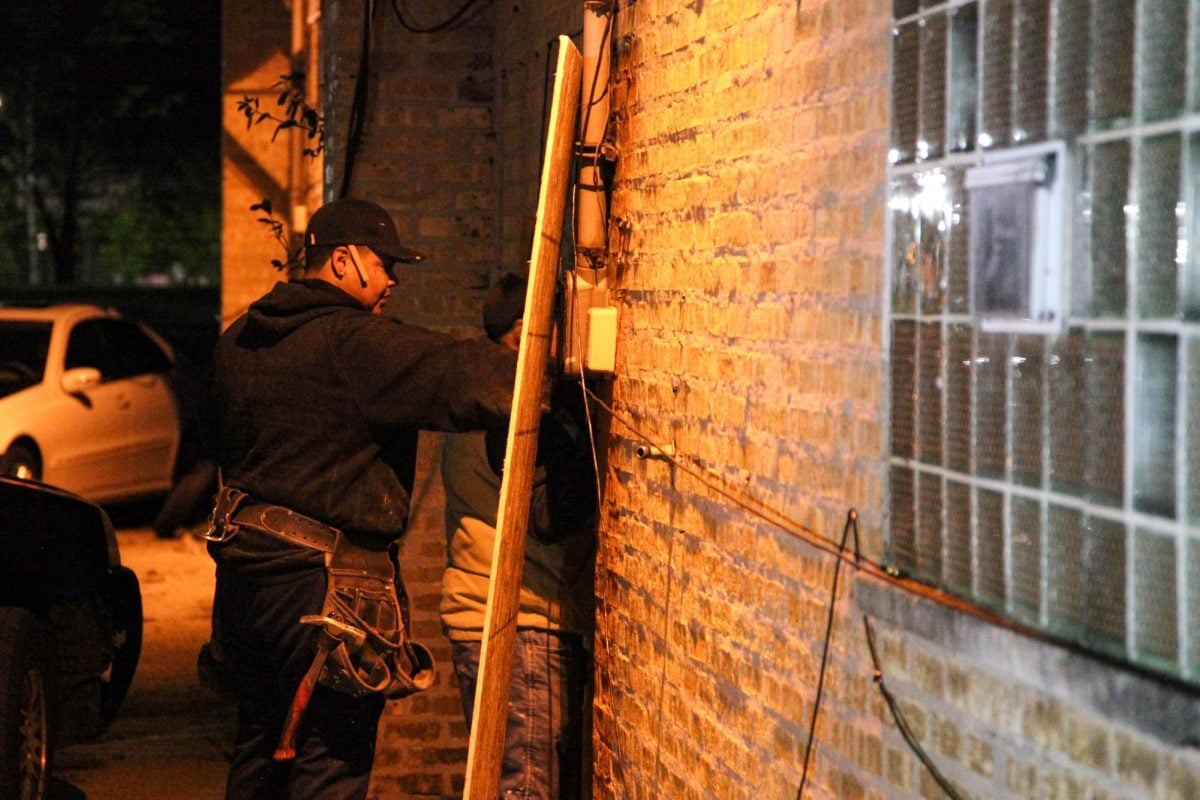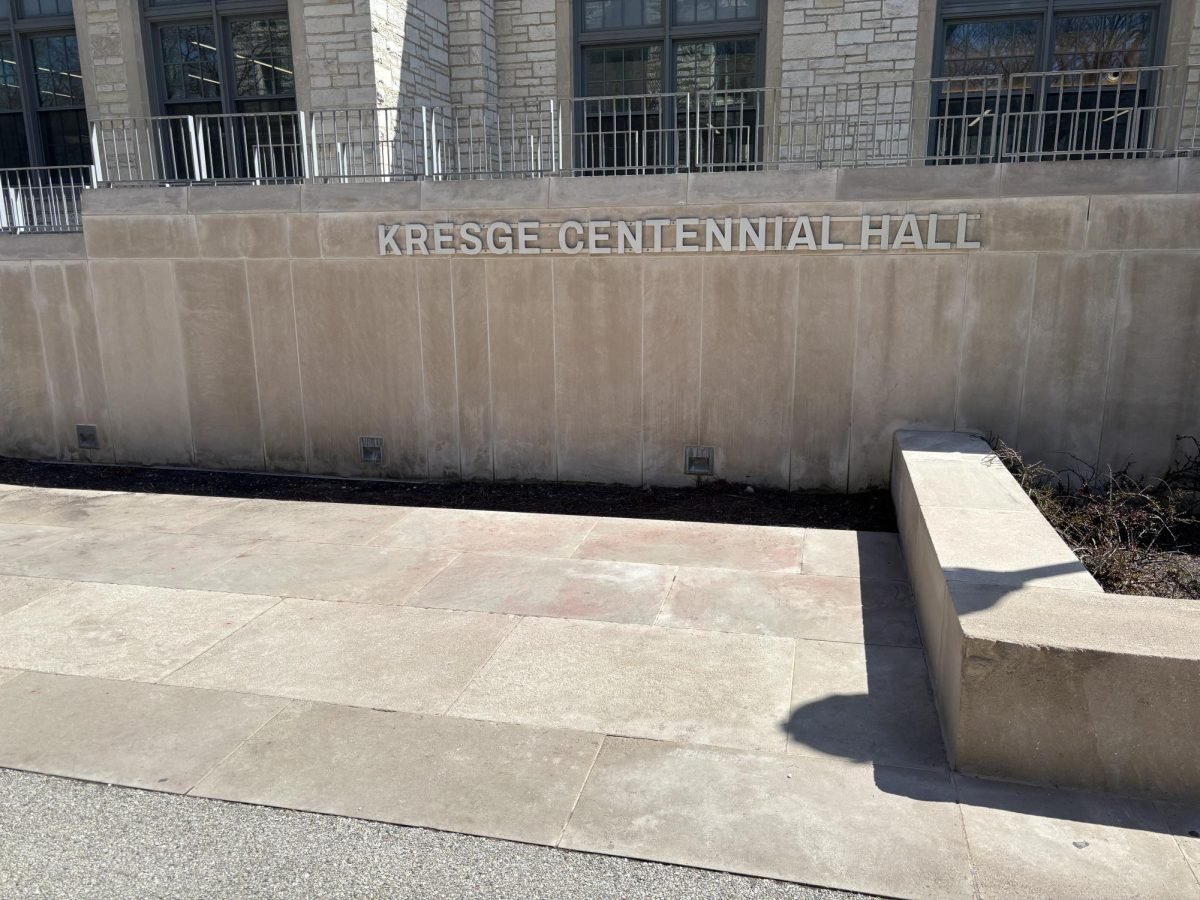Members of Evanston’s Housing & Community Development Committee addressed concerns of former Wesley Avenue apartment residents facing uncertainty about their homes in a Tuesday meeting.
City officials ordered tenants to move out of the 2014, 2018 and 2024 Wesley Ave. apartments in February citing unsafe conditions caused by deterioration in the buildings’ stairs and stair landings. Despite setting a May 13 move-out deadline, the city ordered residents of 2018 Wesley Ave. to vacate several days before the cutoff date and since then, all remaining tenants of the three apartment buildings have moved to temporary housing units.
Tuesday’s discussion included public comments from 12 individuals, revealing opinions among residents and committee members that highlighted various ongoing challenges.
Committee member Hugo Rodriguez said he had attempted to add the issue to the agenda twice earlier this year without success.
Rodriguez said there is still a lot to be discussed regarding the city’s handling of the situation. He questioned the availability of funds, pointing out the Affordable Housing Fund contribution made by Northwestern and whether the city had made any requests to utilize these funds for the Wesley residents.
He emphasized the ongoing issues faced by the unsettled residents of the Wesley buildings, pointing out the stress caused by the city’s order to vacate.
“We still have unhappy residents of the Wesley buildings with the complete field that they are not settled,” Rodriguez said.
Residents’ concerns
Tenants voiced their frustrations with the lack of inspections at the Wesley Avenue apartments over the past years and the lack of consideration going into rehabilitation options.
Evanston resident William Carter said he and other residents have been trying to meet with the committee to find resolutions to some of the ongoing issues affecting the Wesley tenants. He says it has been months since they first became aware of these problems.
“Why is it so hard to get a sit down with this committee to find a resolution to what’s happened to the tenants of Wesley?” Carter said.
Executive director of Chicago-based Housing Opportunities & Maintenance for the Elderly Gail Schechter brought attention to the discrepancies between the city’s consolidated plan and its actions, emphasizing that inspection efforts at the housing units had not been conducted as scheduled.
Schechter says according to the consolidated plan, multi-family rental units are mandated to be inspected every three years, with a comprehensive review every five years under the Community Development Block Grant program.
Pointing out the absence of inspections since 2015, Schechter underscored a lack of accountability and questioned whether that contributed to the deterioration issues.
Rene Sutherland expressed skepticism about the city’s priorities. Sutherland accused the city of intentional negligence and cited failures to address the deteriorating stairs.
“When you did find out that those stairs were deteriorating, you didn’t go to the landlord and do this same thing that you’re supposed to do to any landlord that’s letting a building become dangerous,” Sutherland said.
Sutherland further criticized the city’s statement declaring that safety was a priority, arguing its failure to conduct an inspection in 2022 contradicted this claim.
“If their safety was prioritized in 2022, you wouldn’t be here right now. The money that the city is putting into subsidizing their apartments, that’s a short-term waste of money when instead you could have fixed the stairs,” Sutherland said.
Five-Fifths TIF Concerns
The discussion also touched on the Five-Fifths tax increment financing (TIF) and its role in the situation. Darlene Cannon raised concerns about the TIF’s current allocation of funds, which were originally intended to help Black homeowners.
“I just heard that there’s 300,000 dollars, but I also know that there was 700,000 dollars that was allocated to a business,” Cannon said.
Cannon expressed concerns from an equity standpoint on how the city treated the Wesley residents. She said she feels as if oppression and displacement of Black people were being normalized under the guise of safety concerns.
Pointing out this disparity, she advocated for an increase in prioritization of the residents’ needs.
Responses from the council
Ald. Bobby Burns (5th) acknowledged the inconvenience of residents having to leave their homes but said it was an even bigger concern if someone had been injured due to the homes’ dangerous conditions.
“That’s why the city’s first priority was to make sure that people were in safe housing and then we can figure out if people are interested in coming back,” Burns said.
He said that Evanston is committed to ensuring that residents are placed in safe, subsidized housing, either temporarily or permanently.
According to Burns, some residents have said they are content with their new housing accommodations. He said some people can now afford the rents in their new apartments even after subsidies expire because of their affordability.
“Everybody’s situation is different,” Burns said. “What the city has committed to doing is working with everybody as long as they’re willing in case management to make sure that they’re in permanent subsidized housing.”
Call for Action
During the meeting, residents called for greater action and accountability. They questioned the handling of the situation, highlighting the city’s lack of timely inspections and the neglect of the building’s deterioration.
Cannon said although residents are receiving a subsidy for the first year, their future remains unclear beyond that.
Stressing that the loss of 24 units of affordable housing is not an option, Cannon insisted that the city must work to preserve them in perpetuity.
She said the city needs to prioritize repairing and restoring the buildings to ensure the residents, especially the elderly, can afford to continue living there indefinitely.
“Most of these people are at the point where their ability to be able to earn or generate more money has gone,” Cannon said.
The committee acknowledged the need to formally address these issues on the agenda, with Rodriguez emphasizing the urgency for the city to take action. The meeting concluded with a commitment to include these matters on the agenda for further discussions.
Residents say they are glad to hear that the Wesley buildings will be discussed in future agendas. There will be a special meeting on June 25 dedicated to addressing the four proposed changes to the city’s Residential Landlord Tenant Ordinance.
Email: emilykim@u.northwestern.edu
Twitter: @heyyitsemoly
Related Stories:
— Wesley Avenue apartment tenants file lawsuit against property owners, managers
— City offers one-week grace period for Wesley Avenue tenants to move out
— City orders tenants to vacate from 2018 Wesley Ave., boards up building entrances


















